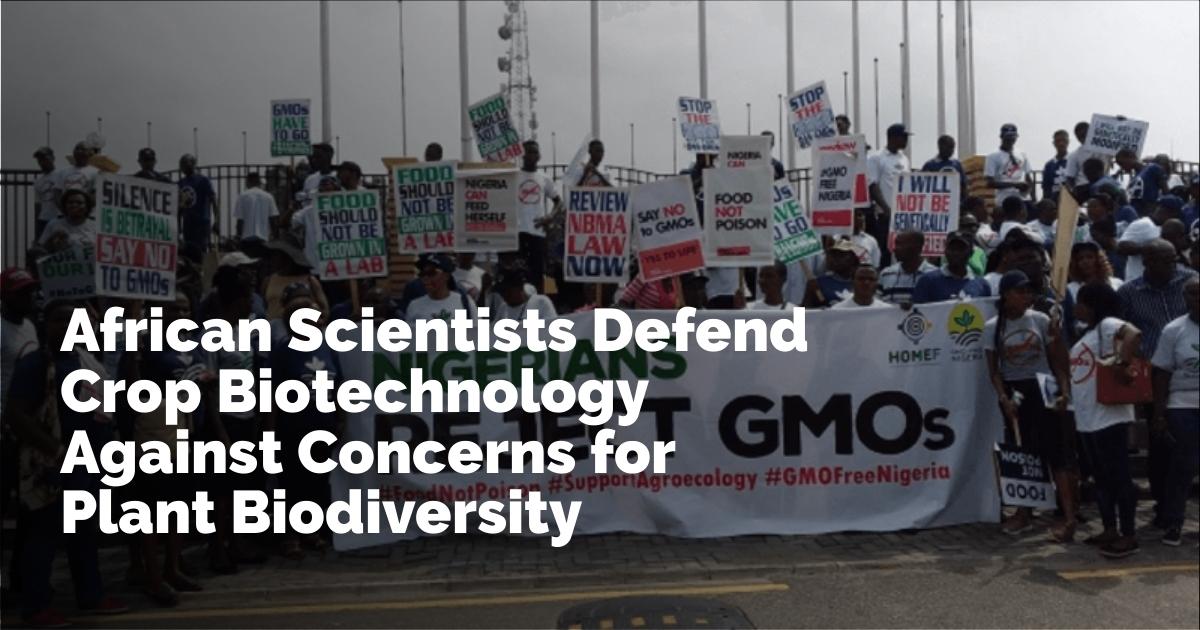Understanding the Debate: Are Genetically Modified Crops Threatening Africa's Biodiversity?
African scientists are standing up against claims from activists who argue that genetically modified (GM) crops and biotechnology innovations are posing a threat to the continent's biodiversity. These claims, linked to a disdain for GMOs, suggest that introducing altered genes into Africa's ecosystems could lead to the degradation of natural biodiversity. However, is this concern grounded in scientific fact, or is it fueled by ideological perspectives?
Clearing the Misinformation on Genetic Modification
Opponents like Fred Odongo, a prominent agroecologist from Uganda, contend that the integration of genetically modified organisms (GMOs) in Africa would result in biodiversity loss, ecosystem destruction, and environmental pollution. However, these accusations are not supported by scientific evidence. The claim that GM crops introduce 'contaminated' genes is misleading. In reality, the genetic modifications in these organisms are deliberate and specific, unlike the random mutations that occur in traditional breeding methods such as mutagenesis.
GM critics often raise concerns about the gene flow into wild plants and the potential development of mutated weeds that could disrupt local ecosystems. Despite these fears, studies have consistently shown that gene escape is as common in conventional and organic farming as it is in GM-related agriculture. Safeguards such as effective monitoring and strategic planting are already in place to manage these risks.
Biotechnology: A Solution for Africa's Agricultural Challenges?
Dr. Rose Maxwell Gidado, Deputy Director of Nigeria's National Biotechnology Development Agency, emphasizes the potential benefits of GM technology for African agriculture. Contrary to claims that biotechnology will diminish biodiversity, Dr. Gidado points out that GM crops allow farmers to produce more food on smaller plots of land. This approach negates the need for further deforestation, which is a significant driver of biodiversity loss.
Dr. Gidado and other African scientists argue that rather than being a threat, biotechnology can be a crucial tool in addressing Africa's food production needs while conserving biodiversity. The continent faces challenges such as intensive agriculture, mining, and deforestation – all of which are known contributors to biodiversity decline. Biotechnology offers a pathway to sustainable agricultural practices by reducing the need for chemical fertilizers and pesticides, improving nutrient content, and increasing crop yields.
Dispelling Myths and Misconceptions
The narrative that multinational agribusinesses are trying to control Africa's food systems through GM technology is refuted by Dr. Gidado. She clarifies that African farmers themselves are advocating for the adoption of GM crops, driven by the tangible benefits they observe. This shift in farming practices is voluntary and aims at improving the livelihood of the farmers.
Furthermore, the purported threat that GM seeds could undermine traditional seed-saving practices is another myth. In reality, GM crops, alongside non-hybrid varieties, can be replanted, thus supporting indigenous farming practices. The introduction of GM cowpea seeds in Nigeria, for example, has been well received by local farmers without any resultant issues.
Advances in Biotechnology: A Bright Future for African Agriculture
Professor Richard Okoth Oduor from Kenyatta University cautions against the rampant misinformation surrounding biotechnology. He highlights the importance of leveraging modern advancements such as transgenics and gene editing to develop climate-resilient and disease-resistant crops, which are essential in tackling current agricultural challenges.
Genomic research and developments in genome editing hold immense promise for Africa's future. These tools can help create crop varieties with improved agronomic traits, crucial for feeding the continent's growing population amid climate change. African scientists are encouraged to lead research and ensure local innovations are patented, securing the continent's place in the global biotechnology arena.
Conclusion: Moving Towards a Sustainable Agricultural Future
As the debate over biotechnology and its impact on biodiversity continues, it is clear that GM crops and gene editing technologies offer significant advantages that should not be dismissed. African scientists are advocating for a balanced view, grounded in scientific evidence, that appreciates both the potential and limitations of these technologies. By embracing biotechnology while upholding biodiversity conservation principles, Africa can forge a path towards a sustainable agricultural future, capable of meeting the demands of its growing population.
출처 : Original Source

